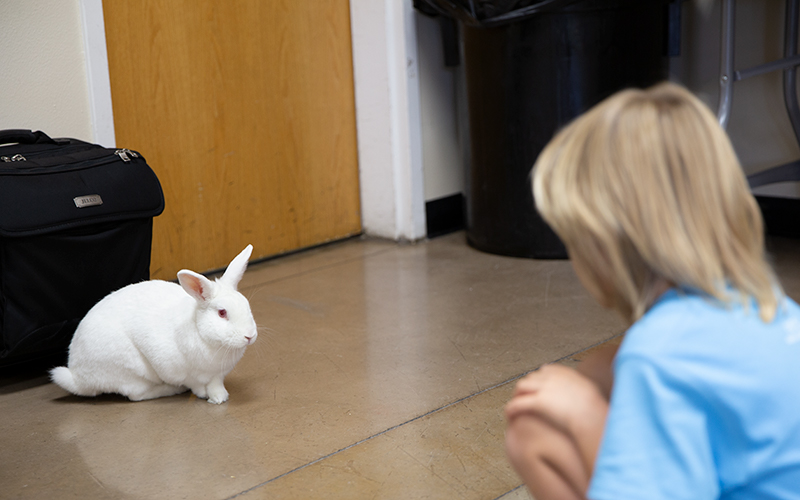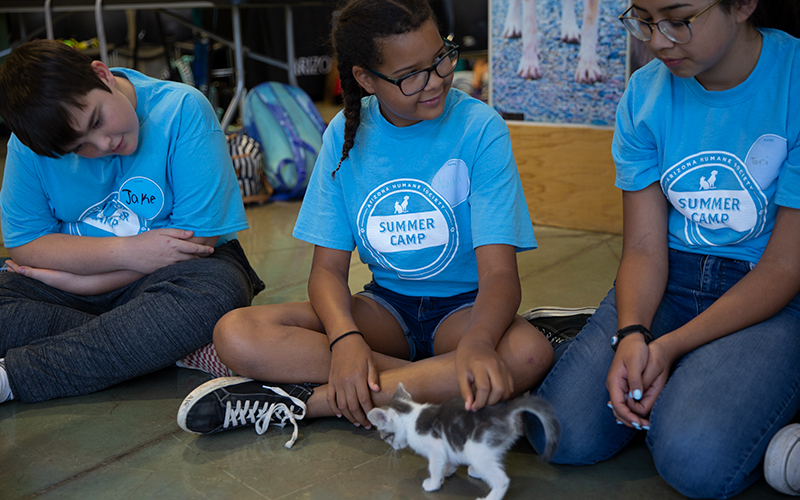PHOENIX – As summer camps kick off around the nation, some young people in metro Phoenix are learning about the compassionate care of animals.
At the Animal Ed-ventures Summer Camps, it’s not just snuggling puppies all day.
The Arizona Humane Society educates children about animal advocacy while working with animal professionals and kittens, dogs and rabbits. The society offers five summer camps for children of different age groups, with career interests ranging from animal first responders – who provide rescue services and medical care – to opportunities in the veterinary field.
Shelby Erdman, education and outreach supervisor for the Arizona Humane Society, said such camps can change the community by teaching young people such values as empathy and the importance of neutering and vaccinating pets.
According to the American Veterinary Medical Association, neutering your pets helps prevent the growing number of unwanted dogs and cats. The camps underscore the importance of being responsible pet owners and the risks of leaving animals without owners.
The summer camps cover a broad range of animal care topics, from being a responsible pet guardian to pursuing animal-related careers. (Video by Abbagail Leon/Cronkite News)
The Arizona Humane Society encourages youth ages 14 to 17 to take a leadership position through its camp counselor program. It gives students a chance to teach younger participants and handle the animals in the camps while receiving at least 80 community volunteer hours.
“They are really the backbone to our programs,” Erdman said.
Raizel Andaya, a sophomore at Basis Ahwatukee who’s part of the counselor program, said learning about different animals and having the responsibility to work with them has been her favorite part so far.
The humane society calls the animals they bring into summer camps their “animal ambassadors” because they can handle large groups of people. The animals help personalize the learning experience for the children.
Erdman hopes children attending the camps can view them as a “resource in the community” and “come back as adopters.”
Follow us on Twitter.


